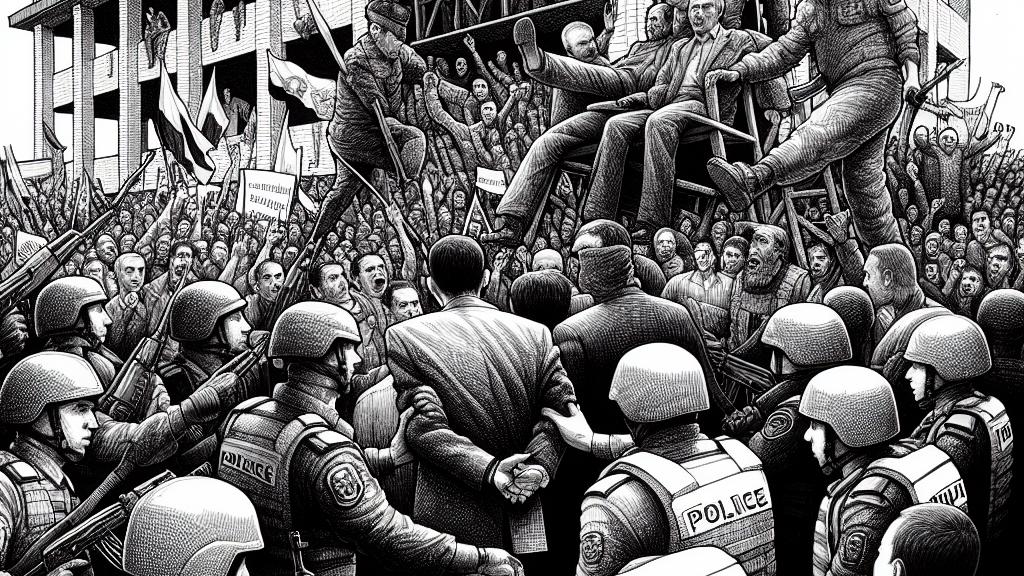Tanzania's Political Tensions Escalate: Tundu Lissu's Arrest Sparks Outrage!
Overview
- Tundu Lissu and Chadema officials detained just before significant rally.
- Authorities cited potential violence despite recent political opening.
- Opposition fervently demands release, showcasing underlying tensions.

Backdrop of Political Unrest
In Tanzania, political unrest has resurfaced dramatically as Tundu Lissu, a key figure in the opposition party Chadema, was arrested alongside two officials in Mbeya just hours before a planned rally to commemorate World Youth Day. This coincided with a pivotal moment where President Samia Suluhu Hassan had recently lifted a long-standing ban on political gatherings, a restriction imposed by her predecessor, John Magufuli. The attempts by the government to suppress Lissu's rally not only challenge the current administration's credibility but also signal a troubling continuity of authoritarian tactics in a nation that many hope would embrace a more democratic future.
Police Justifications and Unfolding Events
The Tanzanian police justified their actions by arguing that the Chadema rally posed potential risks of inciting violence, with officials alluding to recent anti-government demonstrations in neighboring Kenya as a point of reference. As thousands of young people planned to gather under the empowering slogan, "Take charge of your future," police intervened by arresting supporters and escorting them back to their cities. This heavy crackdown raises alarms regarding the government's approach to political dissent and the effectiveness of Hassan's promises for reform. Many are left to question whether the lifting of the rally ban was a genuine gesture towards political freedom or merely a superficial change amid deeper systemic issues.
Reactions from the Opposition and Political Context
The response from Chadema has been swift and resolute, with party leaders demanding the immediate and unconditional release of their detained colleagues. Freeman Mbowe, the chairman of Chadema, criticized the arrests as an affront to democracy, while highlighting the stark contrast between the government’s purported political openness and the harsh reality faced by opposition figures. With presidential and parliamentary elections on the horizon, traditional tropes of repression could hinder democratic engagement, further squeezing the hopes of Tanzanians yearning for an inclusive political landscape where every voice can be heard.
The Way Forward: Assessing the Political Climate
As Tanzania stands at a crossroads, the arrest of Tundu Lissu sheds light on the ongoing struggle for democratic rights in the nation. The anticipation for a more open political environment was buoyed by the lifting of the rally ban, yet the recent crackdown exemplifies the inherent tensions between the ruling party and the opposition. Moving forward, the efficacy of President Hassan's administration in addressing these tensions will play a critical role in determining the trajectory of Tanzania’s political future. The unfolding events serve as a reminder of the importance of civil rights, as the youth and opposition groups rally their efforts to ensure their voices are not silenced as they navigate towards a more democratic future.

Loading...